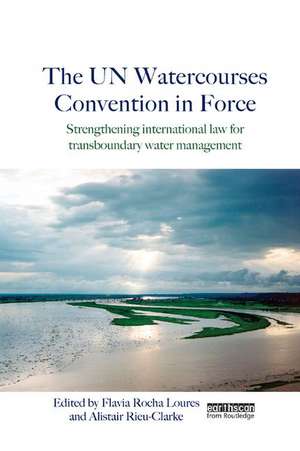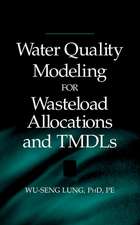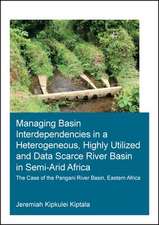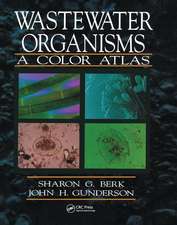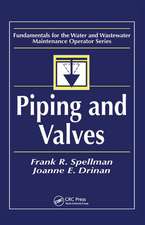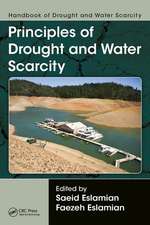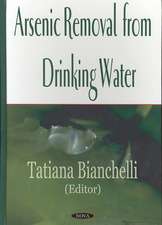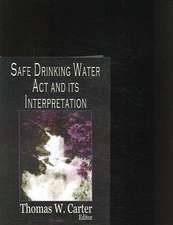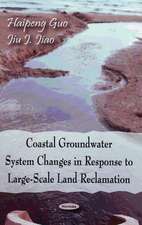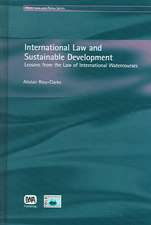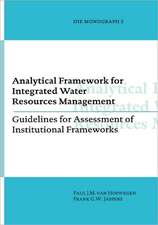The UN Watercourses Convention in Force: Strengthening International Law for Transboundary Water Management
Editat de Flavia Rocha Loures, Alistair Rieu-Clarkeen Limba Engleză Paperback – 12 oct 2017
This volume provides an assessment of the role and relevance of the UN Watercourses Convention and describes and evaluates its entry into force as a key component of transboundary water governance. To date, the Convention still requires further contracting States before it can enter into force. The authors describe the drafting and negotiation of the Convention and its relationship to other multilateral environmental agreements. A series of case studies assess the role of the Convention at various levels: regional (European Union, East Africa, West Africa, Central Asia, Central America and South America), river basin (e.g. the Mekong and Congo) and national (e.g. Ethiopia and Mexico). The book concludes by proposing how future implementation might further strengthen international cooperation in the management of water resources, to promote biodiversity conservation as well as sustainable and equitable use.
| Toate formatele și edițiile | Preț | Express |
|---|---|---|
| Paperback (1) | 312.43 lei 6-8 săpt. | |
| Taylor & Francis – 12 oct 2017 | 312.43 lei 6-8 săpt. | |
| Hardback (1) | 762.81 lei 6-8 săpt. | |
| Taylor & Francis – 13 aug 2013 | 762.81 lei 6-8 săpt. |
Preț: 312.43 lei
Preț vechi: 371.71 lei
-16% Nou
Puncte Express: 469
Preț estimativ în valută:
59.79€ • 62.19$ • 49.36£
59.79€ • 62.19$ • 49.36£
Carte tipărită la comandă
Livrare economică 12-26 aprilie
Preluare comenzi: 021 569.72.76
Specificații
ISBN-13: 9781138573925
ISBN-10: 1138573922
Pagini: 392
Ilustrații: 5
Dimensiuni: 156 x 234 x 28 mm
Greutate: 0.45 kg
Ediția:1
Editura: Taylor & Francis
Colecția Routledge
Locul publicării:Oxford, United Kingdom
ISBN-10: 1138573922
Pagini: 392
Ilustrații: 5
Dimensiuni: 156 x 234 x 28 mm
Greutate: 0.45 kg
Ediția:1
Editura: Taylor & Francis
Colecția Routledge
Locul publicării:Oxford, United Kingdom
Public țintă
Postgraduate and ProfessionalCuprins
Part 1: Background and Evolution 1. Introduction 2. The progressive development of international water law 3. Possible Reasons Slowing Down the Ratification Process 4. Misconceptions Regarding the UN Watercourse Convention’s Interpretation 5. Why Have States Joined the UN Watercourses Convention? Part 2: Entry into Force and Widespread Endorsement: Potential Effects on International Law and State Practice 6. The Authority and Function of the UN Watercourses Convention 7. Impacts on the International Architecture for Transboundary Waters 8. Factors that Could Limit the Effectiveness of the UN Watercourses Convention upon Entry into Force Part 3: The potential role and relevance of the UN Watercourses Convention in specific regions, basins and countries 9. West Africa 10. Southern Africa 11. Central America 12. Nile River Basin 13. Aral Sea Basin 14. Amazon Basin 15. Mekong Basin 16. Ethiopia 17. El Salvador Part 4: The UN Watercourses Convention, MEAs and International Water and Environmental Policy Goals 18. Convention on Climate Change 19. Convention to Combat Desertification 20. UNECE Water Convention 21. International Development and Environmental Goals Part 5: Beyond Entry into Force: Strengthening the Role and Relevance of the UN Watercourses Convention 22. An Institutional Structure to Support the Implementation Process 23. Filling Gaps: A Protocol to Govern Groundwater Resources of Relevance to International Law 24. Reconciling the UN Watercourses Convention with Recent Developments in Customary International Law Part 6: Emerging Challenges and Future Trends 25. Governing International Watercourses in an Era of Climate Change 26. Benefit Sharing in the UN Watercourses Convention and under International Water Law 27. Water Security – Legal Frameworks and the UN Watercourses Convention 28. Transboundary Water Interactions and the UN Watercourses Convention: Allocating Waters and Implementing Principles
Notă biografică
Flavia Rocha Loures is a Senior Program Officer, International Law and Policy, in the Freshwater Program of WWF, based in Washington, DC.
Alistair Rieu-Clarke is a Reader in the Centre for Water Law, Policy & Science (under the auspices of UNESCO) at the University of Dundee, UK.
Alistair Rieu-Clarke is a Reader in the Centre for Water Law, Policy & Science (under the auspices of UNESCO) at the University of Dundee, UK.
Descriere
Cooperation towards the sustainable management of transboundary water supplies, in accordance applicable international legal instruments, is of crucial importance. This book provides an assessment of the role, relevance and future implementation of the UN Watercourses Convention - a global overarching framework governing the rights and duties of States sharing freshwater systems.
